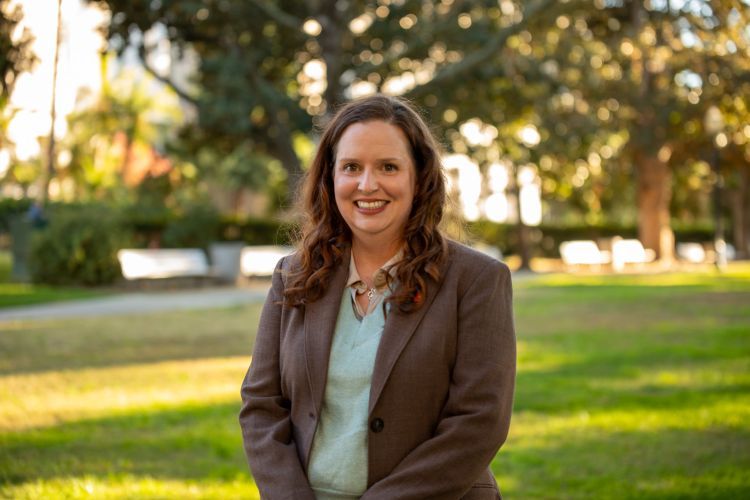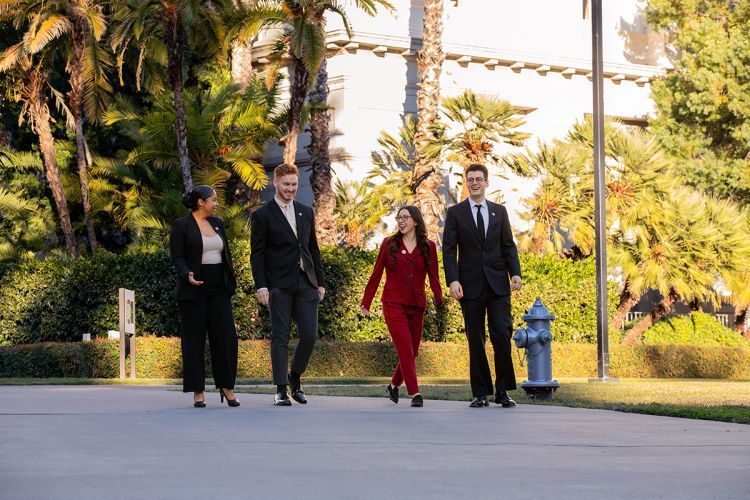Breadcrumb
Professor represents Chile in international water law case

Professor Stephen McCaffrey was named the 2017 Stockholm Water Prize Laureate for his unparalleled contribution to the evolution and progressive realization of international water law.
Carol Olson Endowed Professor of Law Stephen McCaffrey recently argued a case on behalf of Chile before the International Court of Justice (ICJ) in the Hague. The case, entitled, “Dispute over the Status and Use of the Waters of the Silala,” concerns the Silala River, which emerges from springs in Bolivia and flows to Chile partly through artificial channels that were installed nearly 100 years ago by a private company. The case itself is one of only a handful of ICJ cases involving international water law. The Court is still in deliberation and has not yet reached a decision.
McCaffrey is one of the world's foremost authorities on international water law, having been the 2017 Stockholm Water Prize Laureate for his unparalleled contribution to the evolution and progressive realization of international water law. He also received the 2018 Elisabeth Haub Award for Environmental Law and Diplomacy.
The ICJ differs from the American judicial system in several ways, which include the need for consent from both parties to appear in court as well the 15 judges elected by the United Nations General Assembly and Security Council, each from a different country and representing the world’s principal legal systems. McCaffrey has been involved in six cases brought before the ICJ concerning international water law, representing various countries.
“We arranged with the court and its technical staff for me to give my pleadings from a podium in the dining room, so that was fairly unique, and I was honored that the court allowed me to do so,” McCaffrey said.
The main legal issues in the case focused on the rights and obligations that the two nations have concerning the Silala, including the right to use it, obligations to prevent harm to the other nation using the water, as well as obligations to notify each other prior to undertaking any activity related to the river that could adversely affect the other party in a significant way.
Concerning the form of his involvement in the case, McCaffrey said, “It’s sort of constant preparation for the next part of the case; you have the filing by Chile of its Memorial, then Bolivia responds in a Counter-memorial. In this case this initial round of written pleadings was followed by a Reply by Chile, a Rejoinder by Bolivia, and an ‘Additional Pleading’ by Chile. So, all of the written pleadings can take a year and a half or more, and in this case took more than two years.”
The hearings consisted of two rounds of oral argument devoted to the merits of the case, including the counterclaims of Bolivia. Chile first instituted proceedings against Bolivia in 2016, partly to counter the declaration of Bolivia’s former President Evo Morales that Chile was “stealing” Silala waters.
Chile also pointed out that the status of the Silala River as an international watercourse was never disputed until Bolivia claimed the Silala as exclusively Bolivian waters in 1999. Therefore, Chile asserted that the dispute concerns the nature of the Silala as an international watercourse and the resulting obligations of the parties under international law.
In Bolivia’s counterclaims, it requested that the International Court reject all of Chile’s submissions and declare that Bolivia has sovereignty over the artificial canals and drainage mechanisms in the Silala that are in its territory and has the right to decide whether and how to maintain them. Chile raised no objection to these claims, simply pointing out that Bolivia’s acts with respect to the river in Bolivia are governed by international law.
However, Bolivia also contended that it has sovereignty, or ownership, over what it called the artificially enhanced flow of the Silala, produced by the constructed channels and drainage mechanisms, and that Chile has no acquired right to that so-called artificial flow. This idea Chile strongly contested, on the ground that Bolivia’s drainage mechanisms could not convert Silala water to something else. Instead, they merely prevent surface water from becoming groundwater, which would also have flowed to Chile.
McCaffrey prepared three speeches on Bolivia’s claims and counterclaims. The first one, on International Water Law and “Artificial Flow,” was delivered by another member of Chile’s legal team for technical reasons. The other two speeches, concerning observations and replies to Bolivia’s counterclaims, were delivered via Zoom and covered Bolivia’s changes in position throughout the hearings and how the changes prove the counterclaims are untenable.
The press releases and hearing videos are all available on the International Court’s website. McCaffrey’s full speeches may be viewed in these videos:
- Wednesday, April 6; starting at 17:02
- Thursday, April 14; starting at 24:05
For more information about McGeorge School of Law’s Water and Environmental Certificates of Concentration, visit the websites below:
- JD Certificate of Concentration in Water & Environmental Law
- MSL Certificate of Concentration in Water & Environmental Law
- LLM Certificate of Concentration in Water & Environmental Law
Media Contacts: Ashley Golledge, Director of Marketing and Communications, agolledge@pacific.edu, 916.325.4687; and Victoria Ambriz, Marketing Coordinator, vambriz@pacific.edu, 916.325.4631.





